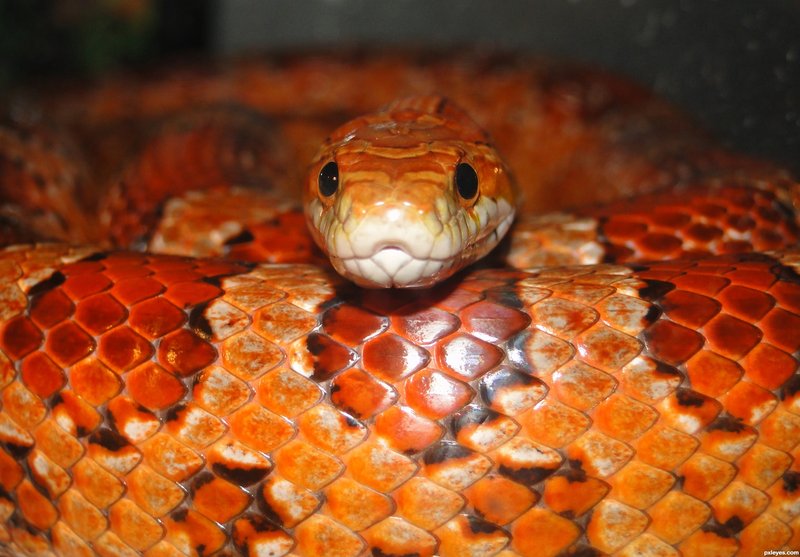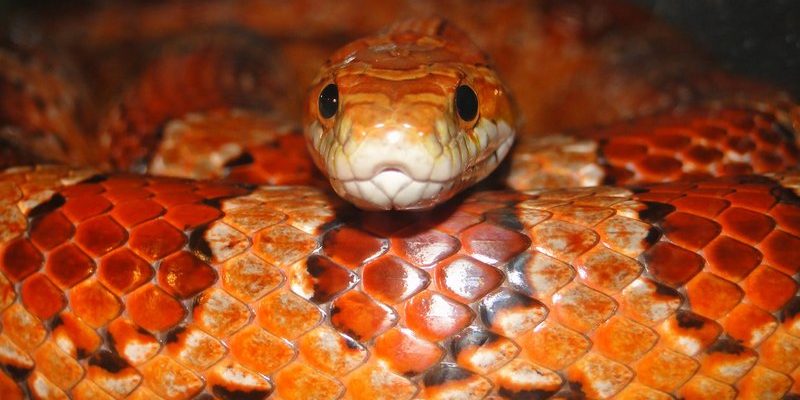
You might be thinking, “What’s the big deal? They’re just snakes!” Here’s the thing: not all states have the same rules about owning exotic pets. Some places allow them with few restrictions, while others might require permits or, in some cases, ban them altogether. So, let’s explore what you need to know about corn snakes and the laws surrounding them, ensuring you have a smooth and legal journey toward snake ownership.
Understanding the Basics of Corn Snakes
Corn snakes are a type of colubrid snake that’s native to the southeastern United States. They’re generally non-venomous, which makes them a safer choice for first-time snake owners. Typically, corn snakes measure about 2 to 6 feet in length and come in various color patterns, including vibrant oranges, yellows, and browns.
What attracts many people to these snakes is their manageable size and docile nature. They’re usually friendly and easy to handle, making them perfect for beginners. Have you ever seen a corn snake basking under a heat lamp? It’s mesmerizing how their scales catch the light, showcasing a beautiful blend of colors. This visual appeal combined with their gentle temperament makes them a popular choice for reptile enthusiasts.
However, owning a corn snake goes beyond just admiration. It comes with responsibility. You need to consider their habitat, diet, and care requirements. But before you get into the nitty-gritty of care, let’s tackle the legal stuff first.
Researching Local Laws: Why It Matters
You might be wondering why you should bother checking the laws about owning a corn snake. Imagine investing time and money into setting up a perfect habitat, only to find out it’s illegal to keep one in your area. That would be a pretty tough situation, right?
Laws regarding pet ownership can vary widely between states and even cities. A state like Florida might have fewer restrictions on exotic pets, while California has strict regulations on owning reptiles. It’s crucial to research your local laws before making any decisions.
Start by checking your state wildlife agency’s website. They often have a list of animals that require permits or are entirely banned. Contacting them directly can also be helpful if you’re unsure. And remember, ignorance of the law won’t protect you from potential fines or worse.
States Where Corn Snakes Are Generally Allowed
In many states, corn snakes are allowed without special permits. Here’s a quick rundown of states where you can keep corn snakes with minimal restrictions:
- Florida: Known for its exotic pet friendliness, Florida allows corn snakes without a permit.
- Texas: Corn snakes are legal here, but you’ll want to check local ordinances that might apply.
- North Carolina: Generally, no permits are required for corn snakes, making them a popular pet option.
Each state has its rules, so always double-check before getting a corn snake. Even if the state allows it, your specific city or county might have different regulations.
States With Strict Regulations
While many places are friendly to corn snake ownership, there are states where the regulations are stricter. If you live in one of these areas, you’ll need to do a little extra homework and possibly jump through some legal hoops.
For instance, in California, owning a corn snake requires a special permit. Likewise, some states have laws to protect native wildlife and may restrict owning non-native species like corn snakes. Even if corn snakes are legal in these places, you might still have to follow specific guidelines to ensure their care aligns with local requirements.
For example, in New York, while corn snakes aren’t banned, you’ll need to make sure your snake is registered in some localities. It’s crucial to double-check any guidelines or permit requirements to stay on the right side of the law.
Permits and Registration: What to Know
If you find yourself in a state that requires a permit, don’t worry—getting one is often a straightforward process. Typically, you’ll need to fill out an application and provide details about the snake’s care and your experience in handling reptiles.
Here’s a simple breakdown of what the process might involve:
1. Application Submission: You’ll likely need to complete a form detailing your planned care and housing setup.
2. Inspection (if applicable): Some states might require an inspection of your snake’s habitat before issuing a permit.
3. Fees: There may be nominal fees involved, which vary by state.
4. Renewal: Keep in mind that some permits require renewal every few years, so it’s important to stay on top of that.
Though it may seem like an extra hurdle, obtaining a permit is part of being a responsible pet owner. It ensures that you have the right knowledge and facilities to care for your corn snake properly.
What If Ownership Is Banned in Your State?
Now, let’s consider a scenario where corn snake ownership is entirely prohibited in your state. You might be feeling a bit down about that, but don’t give up! There are alternatives.
Check if there’s a nearby state where corn snakes are legal. Sometimes, people choose to explore options to travel for educational purposes, like visiting reptile expos or educational centers. Another option is to focus on other reptiles that are legal in your area. Species like leopard geckos or ball pythons could be interesting and legal substitutes.
Also, local reptile rescue organizations might need help caring for reptiles within legal boundaries. Volunteering or fostering can be a great way to get your “snake fix.”
Bringing a corn snake into your home can be a truly rewarding experience, but it’s essential to ensure you comply with local laws and regulations. Before jumping into ownership, take the time to understand your state’s rules, the requirements for permits if necessary, and what will ensure a healthy environment for your new pet.
Choosing to own a corn snake is not just about the thrill of having a cool pet; it’s about being a responsible and informed owner. By doing your research first, you’re setting the stage for a fulfilling and legal pet ownership journey. So go ahead, embrace your interest in corn snakes—just be sure to cross those legal T’s and dot those I’s first!

